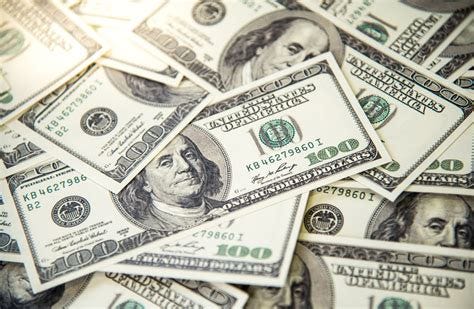
“It is well that people do not understand our banking and monetary system. If they did, I believe there would be a revolution before tomorrow morning.” attributed to Henry Ford
Whether or not the fabulously wealthy Nazi sympathizer Ford used exactly those words, it is undeniable that most of us don’t understand money, and our rulers depend on our ignorance. We believe money is real, that it is a powerful force that must be obeyed. Money puts a number on the worth of all things, on our work, on animals and plants and people. It turns all of Nature and all human talents into commodities. How much money can we get for this forest? How little can we pay these guys to bulldoze it? Having or not having money is the difference between living in a penthouse and sleeping in the alleyway outside.
Is our concept of money based on any objective reality? Most philosophers and economists don’t think so. Financial educator and Investopedia co-founder Andrew Beattie writes: “Money in and of itself is nothing. It is valuable merely because everyone knows everyone else will accept it as a form of payment.” Other scholars like Jeremy Grenkowitz agree, saying money is a “social construction, collective make-believe, a story.”
The accepted story of money has fostered development, wealth and technological growth, but it isn’t working any more. The natural world is being raped to death for a few people’s profit, while millions sink into poverty. In this story, says Rabbi Michael Lerner, author of Revolutionary Love, “we assume that profits must be the foundation for all our economic interactions. We judge our institutions to be productive and efficient and rational to the extent that they maximize money and power.” If a company’s stock price is rising, it’s doing something right, no matter who it’s killing. If you’re poor, you’re doing something wrong, no matter how much you’re helping others.
That’s what the story of money tells us, but it’s just a story, one we desperately need to change. And we can. At this critical moment, COVID-19, Black Lives Matter, and the economic shutdown are challenging the world to find a new story and showing us what it might be.
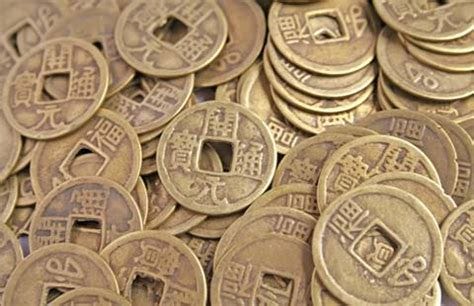
A Brief history of money
Money started out a brilliant story. Instead of bartering an animal skin for some cabbages or whatever, people could sell what they had for money and use it to buy whatever they needed. Andrew Beattie says this was a great advance, “increasing the speed at which business, could be done.” People in many countries started using clay or metal tokens to denote value and agreed to accept them in exchange for goods. Around 800 CE, the Chinese invented paper money. All these tokens and bills only had value because there was a social narrative that said so.
Money made the world richer by enabling trade, but over centuries, it metastasized into a way to store wealth, enabling its possessors to influence and control the world. New forms keep being developed: checking accounts, credit cards, mobile financial apps, stocks, bonds, derivatives. Now, money is everywhere, a god-like force that few can understand, but which controls our lives.
Those who have money use it to gain control of governments. Then, they use the State’s power to further enrich themselves. They benefit from society’s infrastructure (like transportation, water, energy supplies, the Internet,) and write tax laws that make the rest of us pay for them. Meanwhile, people without money can be denied food, clothing, and shelter. They can be forced to work dangerous, demeaning, exhausting jobs for long hours at low pay. For lack of money, millions of people in America can’t afford water, a resource Nature provides absolutely free. Money enables resource extraction companies and ranchers to corrupt governments, displace indigenous people and destroy environments.

The current story of money is enforced through increasingly violent policing. In this story, it makes sense that 16 million housing units lie vacant, while over 500,000 people lack shelter on any given night. Those people don’t have any money, so no right to a bed. While millions are hungry and food banks run out of food, farmers are dumping or burying millions of eggs, truckloads of milk and tons of produce they cannot sell. These paradoxes are in no way moral or economically efficient, but they can seem rational within our narrative of money.
Valuing money over people is part of this story. Workers are used up and thrown out. Customers are markets to be taken advantage of. The natural world is turned into products, and what cannot be sold can be burned. Our story of money justifies these and many other forms of madness, including mass unemployment and mass incarceration. In this story, we can’t afford to treat each other well. Caring is for losers.
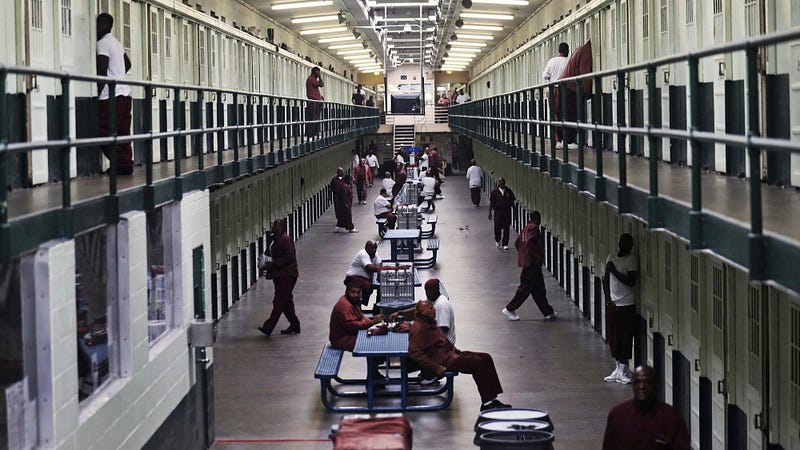
A new story of money
But what if we changed the narrative? What if we returned money to what it was meant to be? Instead of being something ones accumulates and hoards, money would only be something you exchange with other people to get necessities you can’t make yourself. Governments could distribute as basic income an amount of money calculated as adequate to enable all normal transactions. They might create another pot of money for projects, infrastructure development and repair, and for emergencies.
In this story, people who work get more, but nobody is in a ‘work-or-starve’ situation. People can save or invest, but interest rates would be zero or be negative, to encourage them to spend. So, in this narrative, money is just a tool. Nobody can use it to control their government; nobody would be a billionaire. Hoarding money would be as silly as hoarding hammers. Such stories and better ones are being developed in books like Charles Eisenstein’s Sacred Economics.
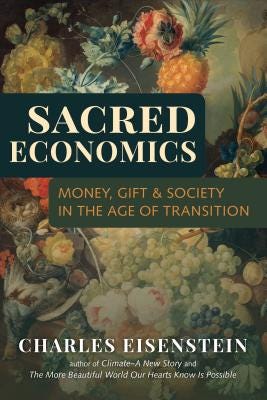
Such radical change might have seemed impossible five years ago, but the COVID shutdown and the rebellion against police violence have changed everything. We can see glimmers of the new story in the midst of the shutdown. As government has paid high levels of unemployment compensation benefits to millions of laid off workers, those who receive them are living well without work, while those who don’t are suffering. So why not give such compensation to all, and make it permanent?
‘That won’t work,’ I can hear capitalists saying. ‘Who would do the nasty, soul-killing work that needs doing? Nobody would work long days butchering hogs or run themselves ragged in an Amazon fulfillment center if they didn’t have to. Who would break their backs picking strawberries if they had a basic income without doing it?’
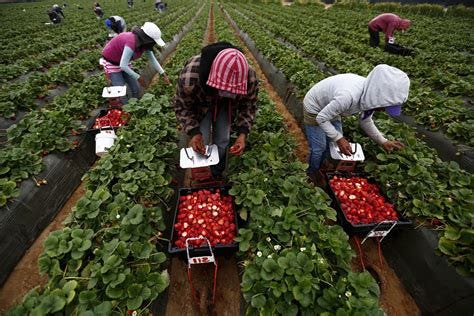
Maybe they wouldn’t. I know I wouldn’t. But should a job exist if people have to be forced to do it? Maybe employers would have to make jobs better, make them more humane, stop treating workers like machines. Maybe they would have to shorten the work day, slow down the pace, pay higher wages, hire more people, provide healthier, safer, more tolerable conditions. Of course, labor costs and prices would then rise, so people would have to consume less. But wouldn’t this be a good thing? We consume far more than our ancestors did, usually far more than is good for us. As Rabbi Lerner says, we need a New Bottom Line, maximizing health and well-being, caring and compassion, not profit.
I have also heard believers in the Puritan work ethic say that a new story of money would be the Devil’s playground. In the work ethic, first developed by 16th Century theologian John Calvin, wealth is a sign of God’s grace. Lack of wealth means you’re a bad person and will probably burn in Hell. Giving people something for nothing is the surest way to corrupt them, make them lazy, and lead them into sin. In this story of money, nothing should be free for working-class people.
I have seen that giving people too much can spoil them, so they never learn to provide for themselves. But a new story of money would include requirements to work. People want to do useful work, and much work actually needs doing. Employers and government would simply provide opportunities for people to do good things, as they did in the Great Depression with the Works Project Administration and the Conservation Corps. The proposed Green New Deal includes such programs.
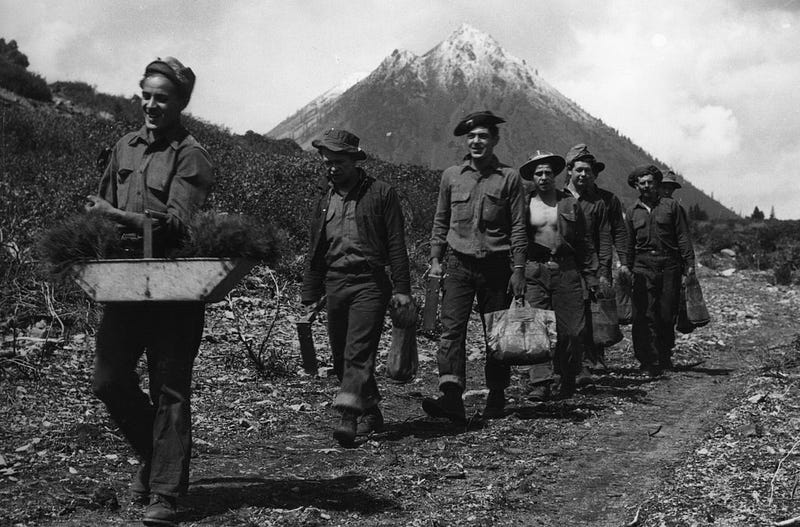
Economists warn of the dangers of inflation: when money loses its value and you need a bucket full of cash to buy a loaf of bread. This has happened many times, for many reasons, including governments’ creating too much money. Politicians might phrase the same concern as “How will we pay for it?” Two answers to this legitimate ask:
1. Tax the rich. Go back to USA’s glory days in the 1950s when the top income tax was 90%, and add a wealth tax on the billionaire class. This will take away money’s power to corrupt governments and will pay for needed programs.
2. This is an old story question. Who is paying for what? We never hear experts warning of inflation or asking how we’ll pay the $30 billion or so the Federal Reserve has been giving the banks every month for 12 years as Quantitative Easing. They don’t warn about the inflationary impact or ask how we’ll pay for the annual $750+ billion military budget. Why should basic income, rent support and food cause massive inflation? Prices aren’t rising much now, during a time of decent unemployment compensation.
Finally, capitalist historians point to the failure of communism. Without the profit motive and without the threat of starvation, people didn’t work hard enough, and in the absence of markets, planners couldn’t coordinate who did what and how. The government wound up having to use force to motivate work, and things got pretty ugly. But the new story is not communism. There will still be markets. Individual effort, creativity and achievement will still be rewarded. It’s just the goals of that effort will change, to focus on a more caring, beautiful, sustainable world.
Rewriting money now
Although corporations will fight hard to keep the old story, we could still win. We could demand forgiveness of debts, massive reductions of rents and mortgages, basic income for all, food for those who need it, universal health care, disarming the police, and a lot more. All those demands are reasonable and doable. Debt forgiveness was a human tradition for thousands of years, sometimes called ‘Jubilee.’ It’s in the Bible, a periodic release of debts and of slaves, commanded by God as a way to keep societies together.
Many in government and finance, however, don’t want Jubilee or a new story. They want to stop generous unemployment benefits as economies “open up,” forcing people back to work. The super-rich can’t accept the story of money as a medium of exchange created by government and distributed to the people. They want money to stop flowing out and return to them, its rightful owners.
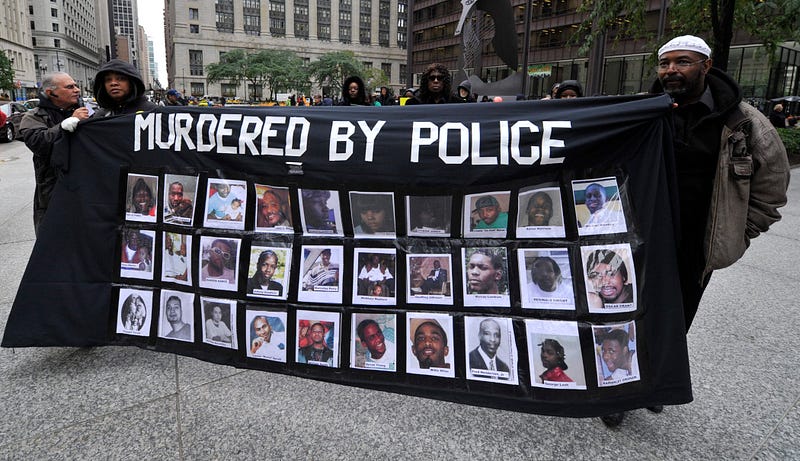
This is the struggle, the revolutionary moment we’re in now. The related issues of pandemic, mass unemployment and police violence affect everyone. The last thing any of us should want is to get back to “normal.” Normal is killing our people and our planet. We need a new story which sees success as what Rabbi Lerner calls a “Caring Society” that serves people, and all life on Earth, not as endless growth and production of more stuff. We don’t want a normal that needs militarized police and soldiers to enforce it.
We can do this. Black Lives Matter is giving strong leadership. People are in the streets. There will be a million details to work out, which will take lifetimes of effort, and better minds than mine, but what is the alternative? If we are going to survive, we need to put money back in its place, as our tool, not our ruler.
— — — — — — — — — — — — — — — — — — — — — — — — — — — — —
Learn more: Eisenstein, Charles Sacred Economics, https://charleseisenstein.org/books/sacred-economics/
Lerner, Michael Revolutionary Love, https://www.goodreads.com/book/show/50978956-revolutionary-love
Black Lives Matter Program https://m4bl.org/policy-platforms/community-control/
Follow me on medium @davidsperorn, on Twitter @davidsperorn, Facebook www.facebook.com/david.s.rn.3 or on my blog The Inn by the Healing Path www.davidsperorn.com/blog
